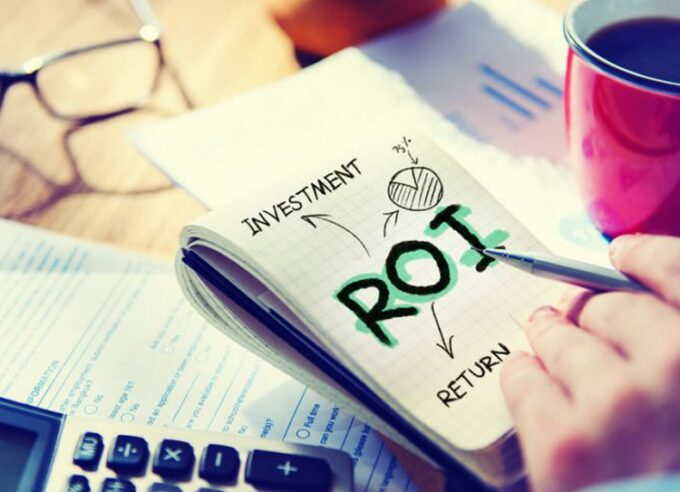Investing in a high-value property can be both a rewarding and challenging endeavor. Whether you’re eyeing a luxury home, a prime rental property, or a commercial gem, it’s essential to plan carefully and make informed decisions. Here are some important steps to take before putting your money into a high-value property to ensure your investment is as solid as the structure itself.
Location is the First Thing to Consider

The real estate mantra “location, location, location” exists for a reason—it’s the foundation of any smart property investment. Before diving into the market, research areas that match your investment goals. For example, if you’re considering generating income through short-term rentals, a short term rental in Florida can be a lucrative option, thanks to the state’s popularity with vacationers and snowbirds alike.
Choosing the right location is more than simply a place with good curb appeal. Look at market trends, local amenities, and future development plans. A property in an area with growing demand can lead to higher returns, whether you’re planning to rent it out or sell it later. Location sets the stage for the success of your investment, so choose wisely.
Find Insurance for a High-Value Property
Investing in a high-value property comes with significant risks, which is why you need the right insurance coverage. Not all policies are created equal, especially in terms of protecting luxury homes or high-priced investments. Researching options for high value home insurance coverage ensures your asset is covered in case of unexpected events.
Comprehensive insurance tailored to high-value properties often includes protections beyond standard policies, such as higher coverage limits and specialized endorsements. Whether you’re safeguarding a luxury home or a historic estate, the right policy can provide peace of mind. Partnering with an insurer experienced in high-value properties ensures you’re prepared for anything, allowing you to focus on maximizing your investment.
The Role of Financial Planning in Your Investment

Investing in a high-value property isn’t just about the upfront cost—it’s about understanding the long-term financial implications. A thorough financial plan includes not only the purchase price but also property taxes, maintenance, and potential upgrades. Understanding the full cost of ownership helps you avoid surprises down the road.
Work with financial advisors or real estate professionals to create a budget that best reflects your investment goals. If you’re financing the property, secure pre-approval and shop for favorable mortgage terms. High-value properties often come with higher carrying costs, so planning ahead ensures your investment remains a source of opportunity rather than stress.
Assess the Property’s True Value
When it comes to high-value properties, appearances can be deceiving. A property that looks perfect on the surface may have hidden issues that could impact its value. Conducting a thorough inspection is a non-negotiable step in the buying process.
Hire experienced inspectors who specialize in luxury or high-value properties. They can identify structural issues, outdated systems, or code violations that could affect the property’s marketability or require costly repairs. Beyond inspections, consider obtaining an independent appraisal to confirm the property’s worth. Knowing the true value ensures you’re not overpaying and gives you leverage in negotiations.
Maximize ROI With the Right Upgrades

The right upgrades can significantly boost the value and profitability of your investment. High-value properties often benefit from luxury features or modernizations that appeal to their target market. Whether it’s adding smart home technology, updating the kitchen with high-end appliances, or enhancing outdoor spaces, upgrades should align with current buyer or renter preferences.
If you’re investing in a property to get rental income, upgrades that increase comfort and functionality are especially important. For instance, adding energy-efficient systems or premium finishes can justify higher rental rates. Focus on upgrades that provide a measurable return on investment while maintaining the property’s overall aesthetic and appeal.
Having a Long-Term Strategy is Important
A high-value property is a significant financial commitment, so having a long-term investment strategy is critical. Are you planning to flip the property for a quick profit, rent it out for steady income, or hold onto it for future appreciation? Your goals will determine how you manage and maintain the property.
Market conditions and your personal circumstances may evolve, so build flexibility into your strategy. Regularly reassess your goals and the property’s performance to ensure it aligns with your needs. A thoughtful, adaptable approach maximizes your investment’s potential while minimizing risks.
The Role Market Research Plays in High-Value Property Investments

Before investing in a high-value property, understanding the market is critical. Market research helps you determine demand, identify trends, and ensure your investment choices align with your financial goals. Take the time to do a deep dive into the local real estate market to understand average prices, rental rates, and turnover trends.
Consider factors such as the area’s economic growth, infrastructure developments, and potential for future appreciation. If you’re targeting rental income, assess occupancy rates and seasonality. For example, a property in a tourist hotspot may perform better in peak seasons. Comprehensive market research equips you with the knowledge to make informed decisions and also maximize your investment’s potential.
How Can Tax Planning Impact Your Investment?
Taxes are a necessary aspect of real estate investment, especially for high-value properties. Understanding the different tax implications of your purchase is essential to avoid unexpected expenses. From property taxes to potential capital gains taxes when you sell, a proactive tax strategy can save you a lot of money in the long run.
Consult with a tax professional who specializes in real estate investments to explore deductions and benefits. For instance, expenses related to property management, maintenance, or even mortgage interest may be deductible. Planning ahead ensures you’re taking advantage of any tax breaks while staying compliant with local and federal laws.
Building the Right Team Crucial
Real estate investing is rarely a solo endeavor, especially when it comes to high-value properties. Surrounding yourself with the right team can make or break your investment. This includes real estate agents with local expertise, property inspectors, financial advisors, tax professionals, and property managers.
Each member of your team brings valuable skills to the table. A real estate agent can better help you negotiate the best deal, while a property manager can handle day-to-day operations if you’re renting out the property. Having a reliable team ensures the process runs smoothly, from the initial search to long-term management. By assembling a team of trusted professionals, you set the stage for a successful and stress-free investment experience.









